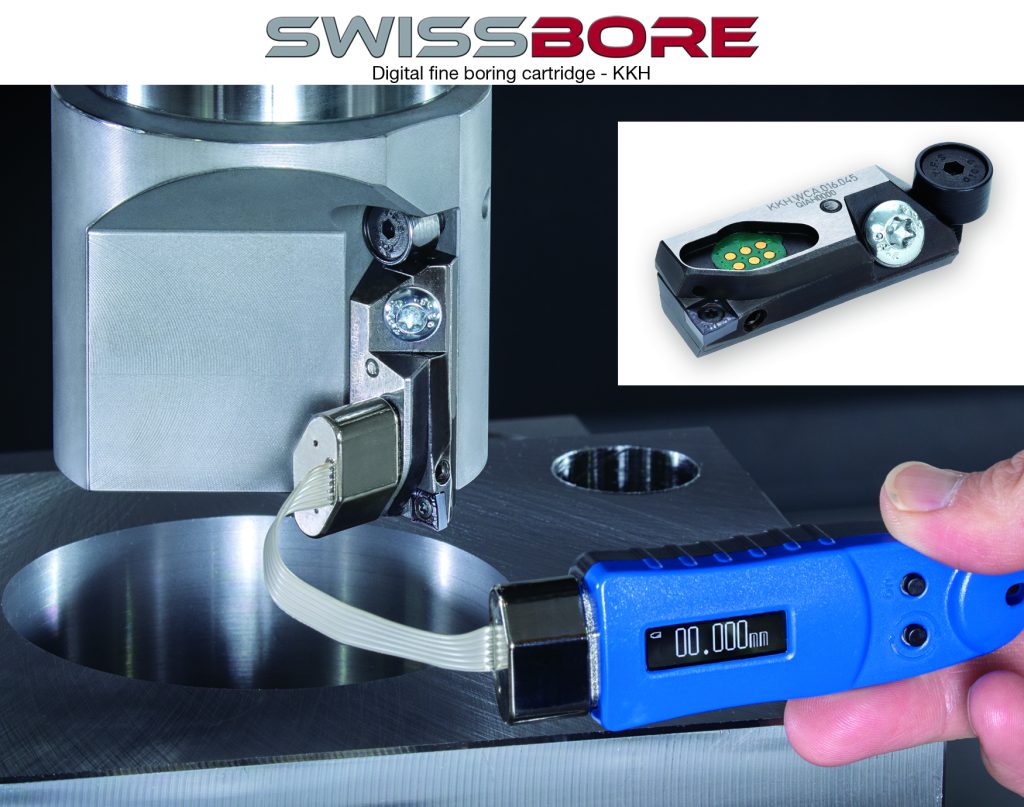KKH Cartridge Modules
KKH Cartridge Modules
KKH cartridge modules take all customized fine boring tooling, whether they are designed by SwissBore or not, and turn them into a state-of-the-art fine boring solution that have one thing in common: they are all digital ready. The cartridge modules allows both radial and axial adjustments. Radial adjustments are possible without influencing axial position, making fine adjustments of the cutting edge position exceptionally efficient and precise.

Tungaloy has done it again. Its latest KKH cartridge modules for SwissBore digital fine boring tool system make all fine boring operations, whether using SwissBore tooling or not, digital ready.
SwissBore digital fine boring tool system covers a diameter range from 9.75 mm (.384″) to as large as 2,000 mm (78.740″) with the use of the extension bridge. The system integrates the Quick-Change coupling solution that contains an extensive range of boring heads, adapters, extensions, and holders with connections based on HSK40/63/100, PSC-C6, MAS-BT30/40/50 and more. This ensures maximum machine utilizations with minimum measuring, setup, and tool changing time for most multi-tasking machines and turning centers.
KKH cartridge modules take all customized fine boring tooling, whether they are designed by SwissBore or not, and turn them into a state-of-the-art fine boring solution that have one thing in common: they are all digital ready. The cartridge modules allows both radial and axial adjustments. Radial adjustments are possible without influencing axial position, making fine adjustments of the cutting edge position exceptionally efficient and precise.





